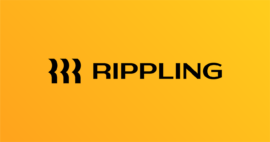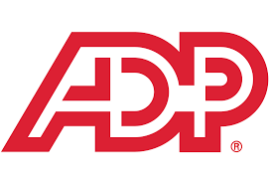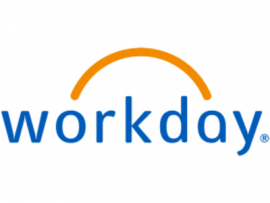
Whether your enterprise has one location or many, a crew of fully remote workers or on-site employees only, you need a payroll solution flexible enough to meet hundreds of employees’ needs while staying accessible to admins processing payroll on a mass scale. You likely also need an all-in-one software solution you can use to manage every aspect of the employee life cycle, from hiring to onboarding and beyond.
SEE: Check out this guide for choosing a payroll service.
To help you find enterprise-level payroll software that actively meets your team’s unique needs, we’ve ranked and reviewed the 10 best payroll software for large businesses. Below, we explore each product’s pricing, features, pros and cons so you can make an informed decision and choose software that makes your company’s payroll process easier, not harder.
Jump to:
Many (though not all) enterprises prefer total HCM or ERP solutions to standalone payroll software systems. Whichever type of solution you choose, though, it should blend a mix of payroll, HR, onboarding, compliance and financial tools to ensure running payroll is seamless.
| Rippling | ADP Workforce Now | Workday HCM | Papaya Global | Paylocity | |
|---|---|---|---|---|---|
| Multiple employee pay options | Yes | Yes | Yes | Yes | Yes |
| International payroll | Global | 140+ countries | 100+ countries | 160+ countries | Yes (through a third-party partner) |
| Dedicated customer support | No | Yes | Yes | Yes | Yes |
| Industry-specific plans | No | Yes | No | Yes | No |
| Free trial | Unlisted | 4 months | Unlisted | Unlisted | Unlisted |
| Pricing | Custom pricing (but starts at $8/user/mo.) | Custom pricing | Custom pricing | Custom pricing (but starts at $12/employee/mo.) | Custom pricing |
Rippling’s comprehensive, customized packages make it one of the most versatile employee management software products for enterprises. All packages require you to purchase Rippling Unity, Rippling’s core platform. From there, you can add whichever Rippling modules your enterprise needs, starting with payroll software for large companies but scaling up to benefits administration, remote device management, inventory management, financial tracking and dozens more.
Rippling’s customizability goes beyond its product packages to its reporting, task workflows, company policy creation and learning management system courses. As an all-in-one, scalable HCM system, Rippling is ideal for enterprises that want to handle every aspect of employee, product and device management on one seamlessly integrated platform.
Rippling starts at $8 per user per month, but enterprise services will most likely cost more depending on your needs. Contact the service directly for a custom quote.
To learn more about Rippling, read our Rippling software review.

ADP is a leading HR and payroll management company with several decades’ worth of experience in the field. Its enterprise-level HRIS product, ADP Workforce Now, lets enterprises manage payroll, time and attendance, HR, reporting, compliance and more on one fully integrated platform.
The company’s full-service payroll solution is just one aspect of the hefty Workforce Now software bundle, which primarily focuses on streamlined, automated HR tools and employee benefits. ADP’s payroll app for employees is one of the best in the business, and the company is also one of the only payroll services to offer an employer-specific payroll app.
If you like ADP’s design and global reach but need a heftier solution than ADP Workforce Now, consider a different ADP product, such as ADP Enterprise HR (for companies with more than 1,000 employees) or ADP GlobalView Payroll (for large multinational corporations).
ADP Workforce Now has three plans and pricing tiers:
While ADP advertises a four-month free trial, it doesn’t list pricing for any of its plans online. You’ll have to contact the company for a custom quote.
For more information, read our full ADP review.

Workday HCM specializes in helping enterprises attract and retain top talent. As part of its focus on helping enterprises create the best possible employee experience, Workday Payroll includes automated payroll audits that check for compliance issues and payroll errors before every payroll run.
Comprehensive, customizable payroll reports give employers thorough insights into payroll expenses. Employees can also customize their dashboards to more easily see the payroll information they need upfront, such as year-to-date totals or annual salary amounts.
Notably, Workday Payroll doesn’t automatically file payroll taxes for you. Instead, enterprises can choose to tackle tax filing in house or work with one of Workday’s third-party payroll companies to outsource payroll processing entirely. The lack of built-in payroll tax administration adds another fee to enterprises using Workday’s enterprise payroll solution.
Workday lacks any transparent online pricing. Contact the company for a custom quote.
For more information, read our Workday HCM vs. Oracle comparison piece.

As a global professional employer organization, Papaya Global helps enterprises hire and pay employees in more than 160 countries. It processes payments in dozens of global currencies and helps employers offer the best benefits to employees no matter where they are in the world.
Papaya Global works closely with each client, from its white-glove setup to its dedicated single-point-of-contact customer service. Enterprise plans are custom-built for each company’s unique workforce management needs. The company also gives you access to global payroll experts with local, on-the-ground experience so you can ensure you’re compliant with national and international labor laws.
Papaya Global starts at $12 per employee per month for full-service payroll, but enterprise-level clients will most likely need custom pricing with additional services.
For more information, read our full Papaya Global review.

Paylocity’s HRIS software for enterprises includes thorough full-service payroll with comprehensive end-of-year tax filing. Like Rippling, Paylocity includes employee expense reimbursement as part of its total financial package. Employees can use Paylocity’s mobile app to submit expenses for approval while employers can use the app to approve reimbursements.
Along with managing tax compliance on your behalf, Paylocity curates a live feed of compliance-related news stories to keep you ahead of upcoming tax and employment law updates. Its comprehensive suite of features also includes time tracking, onboarding, recruiting, scheduling, benefits administration and access to compliance-oriented courses through Paylocity’s LMS.
Paylocity doesn’t list its pricing online, though it does state that custom prices are based on the number of features you select for your HRIS package and the number of employees who use the software.
While every enterprise has a unique workforce with unique payroll requirements, most bigger businesses need payroll software that prioritizes the following features.
While smaller payroll software solutions tend to offer direct deposit only, especially with their lower-tier plans, enterprise-level solutions should have several employee pay solutions. The best plans offer direct deposit, paper check, prepaid debit card and on-demand cashout options.
While every business needs secure payroll software regardless of size, a data security breach can have massive, wide-scale repercussions for enterprises and their hundreds to thousands of employees. Prioritize software that clearly advertises its top-tier security standards, requires your employees to log in with two-factor identification, and allows you to create custom workflows and admin privileges so you can closely monitor who can access sensitive data stored on company servers.
Enterprise-level HR departments don’t have time to waste tediously accomplishing tasks by hand. At a minimum, your payroll software should automate paycheck calculation, payroll tax filing, end-of-year tax-form preparation, employee benefit administration and compliance checks. Some payroll software (Rippling, for instance) also lets you design customized workflow automations that are triggered by actions specific to your company.
With very few exceptions, even the most comprehensive HRIS, HCM and ERP solutions can’t cover every single task your business needs to perform. As a result, you need a workforce management system that syncs with other popular business software — especially with your enterprise accounting software of choice.
Ideally, your payroll and accounting solutions sync seamlessly. Your general ledger should update automatically (or at least by requiring as few manual actions as possible) whenever you process payroll so that when you and other stakeholders check your company’s financial data, you’re always working with the most accurate, up-to-date information.
Enterprises with 250 U.S.-based employees have much different needs than companies with 2,000+ employees working throughout several different countries. Whatever payroll software you choose, make sure it will scale up with you as your team grows. For instance, if your business intends to go global at some point, consider software that offers international payroll as an add-on instead of opting for a company that lacks global payroll processing and payments.
Finding the best payroll system for your large business requires in-depth research, multiple conversations with customer service representatives, custom quote requests and live in-person demos. You might also consider asking software companies for a limited free trial so your team can get hands-on experience with enterprise-level payroll software before you commit to a contract.
Most importantly, focus on finding software with features that will best serve your company’s unique needs while keeping scalability in mind. Weighing each payroll provider’s base costs, industry-specific solutions, ease of use (specifically its interface’s functionality) and level of customer service can help you find the perfect payroll software to grow with.
To rank and review the best enterprise payroll software, we looked solely at payroll providers that clearly offered enterprise-specific solutions. We prioritized HCM, ERP and HRIS software over standalone payroll providers. While we primarily ranked payroll providers according to their enterprise payroll features, we also considered each solution’s HR features, time management tools and talent management features.